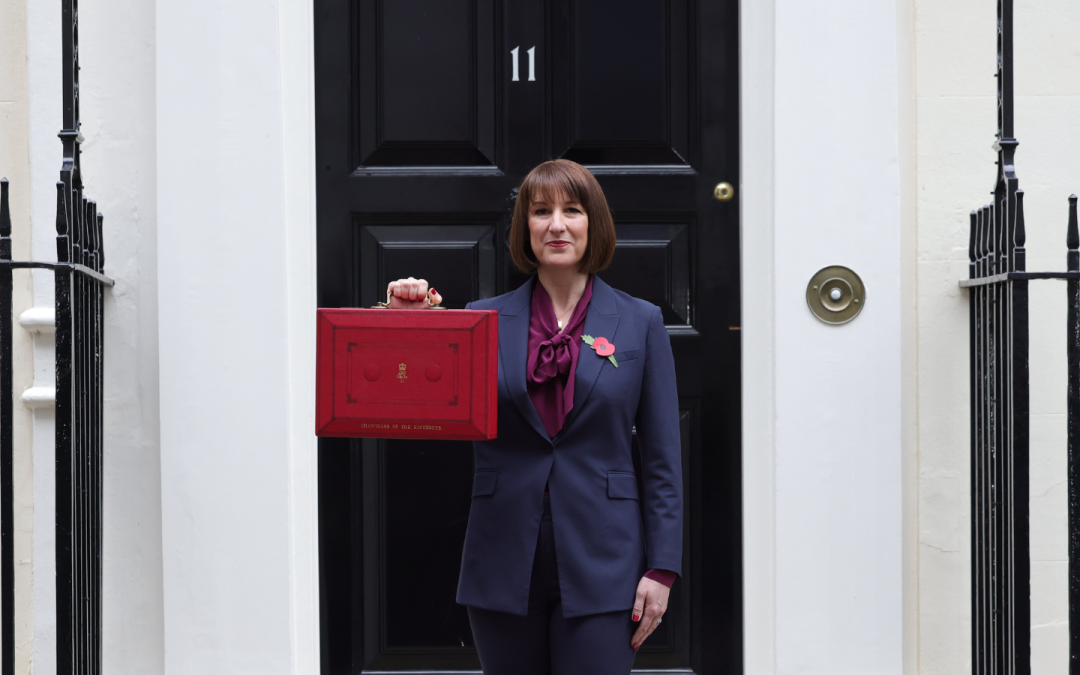Industry has responded to the announcement of the Autumn Budget, highlighting the potential effects of extra costs on farmers.
It was announced by Chancellor Rachel Reeves that the farming budget will remain at £2.4 billion for 2025/26.
In addition, there were changes to the inheritance tax for UK farms. From April 2026, the first £1 million of combined business and agricultural assets will continue to attract no inheritance tax at all, but for assets over £1 million, inheritance tax will apply with 50% relief, at an effective rate of 20%.
Budget could be “final straw” says NFU
The National Farmers’ Union (NFU) said that the Budget’s impact on British family farms could be “the final straw for many” after a decade of what it described as tightening margins, cost inflation and extreme weather events.
Reacting to the announcements, NFU president Tom Bradshaw said: “This Budget not only threatens family farms but will also make producing food more expensive. This means more cost for farmers who simply cannot absorb it, and it will have to be borne by someone. Farmers are down to the bone and gristle, who is going to carry these costs?
“It’s been a bad Budget for farm confidence, which is already at an all-time low. After today farmers, including tenants, have more uncertainty and more worry, not less.
“When you look farmers in the eye and make them a promise, keep it. The shameless breaking of those promises on Agricultural Property Relief will snatch away much of the next generation’s ability to carry on producing British food, plan for the future and shepherd the environment.
“It’s clear the Government does not understand that family farms are not only small farms, and that just because a farm is a valuable asset it doesn’t mean those who work it are wealthy. Let’s not sugar-coat this, every penny the Chancellor saves from this will come directly from the next generation having to break-up their family farm.
“This is one of a number of measures in the Budget which make it harder for farmers to stay in business and significantly increase the cost of producing food.”
AHDB says industry at “tipping point”
David Eudall, Agriculture and Horticulture Development Board (AHDB) Economics & Analysis director, said: “The funding pot for agriculture in the UK has remained constant at £2.4 billion since the 2019-24 parliament. During this time, inflation has led to a 44% increase in farm costs while the agriculture budget remains the same. We are at a tipping point of how effective this budget can be in meeting the desired outcome of balancing food security, supporting farm efficiency, and delivering environmental benefits given the inflationary pressures we see.”
Eudall continued: “The impact of the changes to inheritance tax means that from April 2026, a farm worth £2 million will have a £200,000 tax requirement to pay on the £1 million above the threshold. For every additional £1 million the farm is worth, a further £200,000 will be required to be paid in inheritance tax.”
CCF labels the country in “financial mess”
Phil Pluck, CEO of the Cold Chain Federation (CCF), said: “The Autumn Budget 2024, the first from the Labour Government, is clearly one of the biggest tax hikes in the last 20 years. But it could have been worse.
“I welcome the decision to freeze fuel duty and extend full expensing, both of which the Federation has strongly advocated for.
“The focus on new fiscal rules for infrastructure investment is promising. We eagerly anticipate progress in removing the obstacles hindering our sector’s growth. However, it’s crucial to collaborate closely with industry to ensure that investments in future industries drive UK-wide growth.
“However, a £40 billion increase in taxation, where we see businesses directly contributing £25 billion to increased national insurance, is concerning. Especially so when you consider an increase in the National Minimum Wage and possible increases in borrowing rates due to pressure on inflation due to new fiscal borrowing rules.
“The UK cold chain sector adds £14 billion to UK GDP; it already contributes £3.7 billion in UK tax and employs over 184,000 people. This is a budget that simply does not recognise or fully support its continuing contribution as vital part of UK national infrastructure. You cannot isolate these increased fiscal pressures on business without including the recent announcements in the proposed Employment Bill.
“It all adds up to a message to industry and the cold chain sector that says the country is in a financial mess, so we expect employers to dig us out of this. Our message back is, “we already are, we have been for many years and now is the time to recognise our contribution, not penalise it.”
“For the cold chain sector, the extension of full expensing is a significant boost. This will empower businesses to invest in cutting-edge technology, enhancing productivity. Additionally, the extension of current climate change agreements provides much-needed certainty as we invest in energy efficiency and plan for a sustainable future.
“While these measures are positive, we remain disappointed by the lack of rates reform for cold stores and additional support for the transition to next-generation transport refrigeration units. We urge the Government to prioritise these areas in future policy decisions.”









